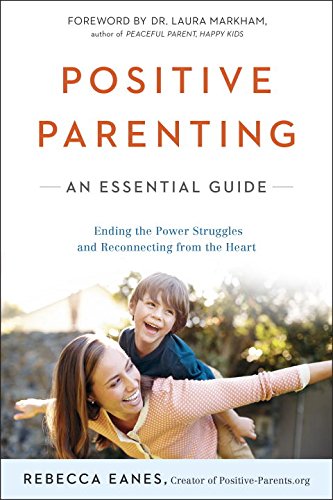The foundation of positive parenting rests on five principles: attachment, respect, proactive parenting, empathetic leadership, and positive discipline. These five principles go hand in hand to both build a strong bond and to position you to be the effective leader your child needs to guide him through childhood.
![]()
Principles of Positive Parenting
1. Attachment
According to the attachment bond theory pioneered by English psychiatrist John Bowlby and American psychologist Mary Ainsworth, the bond (or attachment) formed between primary caregivers and infants is responsible for:
- Shaping all our future relationships
- Strengthening or damaging our ability to focus, be conscious of our feelings and calm ourselves
- Affecting our ability to bounce back from misfortune.
Children are hardwired to connect on a biochemical level. This happens first with their immediate family and then with the broader community. If that connection isn’t there, the brain may not develop as it is supposed to. When a secure attachment is made, the child feels safe. Research suggests that children who fail to develop a secure attachment in the early years often have behavioral problems and relationship troubles later in life.
2. Respect
As human beings, children deserve the same consideration we afford to others. Children need to be treated in a thoughtful, civil, and courteous manner, just as we treat other people. Research has shown that children who have loving, nurturing parents grow a bigger hippocampus, which promotes better memory, learning, and stress response. Therefore, we respect a child’s mind when we are nurturing and positive. We respect a child’s body and dignity when we choose not to hit her to cause deliberate pain for training purposes. We respect her personhood when we give space to allow her to explore and develop at her own pace. We respect her spirit, acknowledging that each child comes with her own unique spirit, which is to be honored.
3. Proactive parenting
Proactive parents address potential problem behavior at the first sign before it becomes a serious problem. We also understand that by putting in extra time building the relationship and teaching up front, we thwart many problems that could have arisen from disconnection and lack of knowledge and instruction. Proactive parenting also means that parents respond rather than react to their children’s behaviors. This requires forethought into how one will respond as well as a planned action. Whereas reactive parents act impulsively, responsive parents are in control of themselves and able to execute the plan when a situation arises.
4. Empathetic leadership
Not to be confused with permissive parents, positive parents are still in the leadership role. In fact, it is a gross disservice to children to not give them competent leaders to guide them on their journeys in this big, new world. Being empathetic means we understand the needs of our children and relate to them in a way that helps them feel heard and understood while still holding the boundaries we have set.
5. Positive discipline
Punishment is distinct from discipline. The goal of punishment is to make someone suffer enough to cause them to want to avoid that particular behavior (and therefore punishment) again in the future. The goal of discipline is to teach someone to control impulses and behavior, to learn new skills, and to fix mistakes and find solutions.
Many of today’s “parenting methods” focus entirely on how to discipline children. The philosophy of positive parenting goes way beyond just discipline. While the actions and demeanor you take in discipline are important, realize it is not just discipline that matters but the entire childhood experience you provide. Children are shaped not only in moments of admonition and correction but by the hundreds of thousands of moments— miles and tears, successes and failures, encouragement and discouragement, laughter and sorrow, acceptance and denial, disconnects and reconnects— hat make up their childhood.
Positive Parenting: An Essential Guide
Tired of yelling and nagging? True family connection is possible–and this essential guide shows us how.
Popular parenting blogger Rebecca Eanes believes that parenting advice should be about more than just getting kids to behave. Struggling to maintain a meaningful connection with her two little ones and frustrated by the lack of emotionally aware books for parents, she began to share her own insights with readers online. Her following has grown into a thriving community–hundreds of thousands strong.
&
&
Excerpted from Positive Parenting by Rebecca Eanes with the permission of TarcherPerigee, an imprint of Penguin Random House. Copyright © 2016 by Rebecca Eanes.
Share This!
![]()


Great want more of this